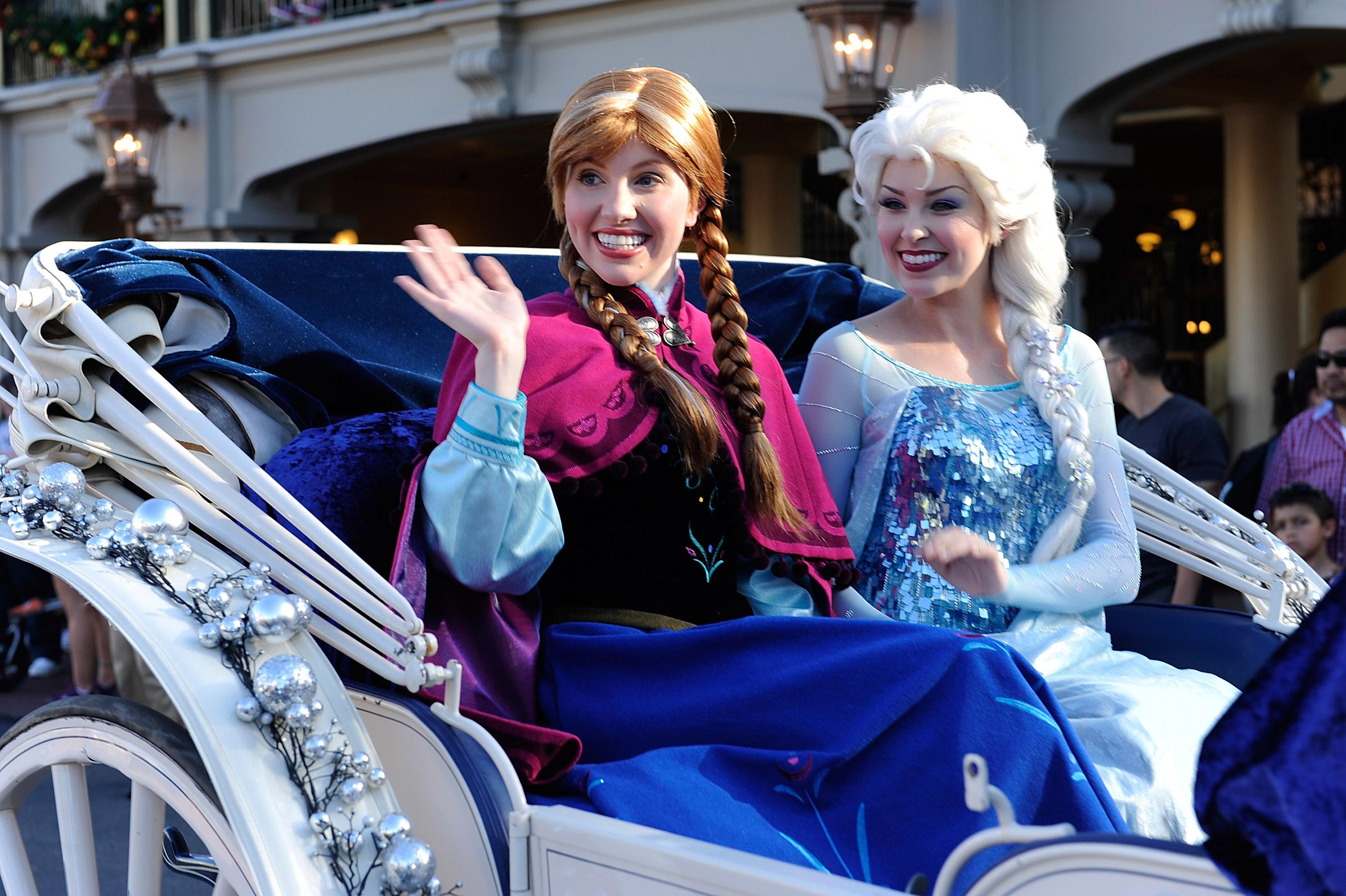The new Disney movie Frozen, despite appearing to be a normal enough princesses-and-adventures offering from the mouse, has resulted in a pitched controversy among parents online. In a dramatic twist (which is to say, SPOILERS), the handsome prince who sweeps the princess off her feet in the course of a single day turns out to be a bad guy who is only pretending to love our heroine to get his hands on her inheritance. Instead of the prince’s true love—which is often portrayed in Disney movies as forming before the heroine says a word—saving the princess, it is a sister’s love that must save the day. Seems like a good, feminist message to send to girls: Don’t agree to marry someone you just met and remember that the love of friends and family counts as much as romantic love. But some parents are really upset.
Gina Dalfonzo at the Atlantic protests the twist where Hans, who convinces Princess Anna to put a ring on it after less than 24 hours, turns out to be a bad dude. She writes:
Ouch. That moment would have wrecked me if I’d seen it as a child, and the makers of Frozen couldn’t have picked a more surefire way to unsettle its young audience members.
She tacitly acknowledges the obvious objections, particularly regarding the way that there are plenty of children’s classics with objectively worse moments. (Bambi’s mother, anyone? Actual parental figures like stepmothers trying to kill you?) However, she argues, this is worse because, “there is something uniquely horrifying about finding out that a person—even a fictional person—who’s won you over is, in fact, rotten to the core.” Really? Worse than your mom dying? Worse than Charlotte the spider dying? I’m not buying it. Even if you’re 6 years old, finding out that the handsome guy who won you over is a cad is never going to be worse than your mom going down in a hail of gunfire.
Dalfonzo hedges a bit by saying she doesn’t think it’s necessarily a bad idea to tell a story warning of the dangers of the guy who tries to lock you down as fast as possible and separate you from your family (aka, the red flags for domestic violence). She just thinks there should be more moments when Hans turns to the camera and twirls his mustache a little, so you see it coming. “But young children, in general, are not that sophisticated,” she argues. “They’re more like the viewers of old melodramas, wanting the hero and villain clearly delineated from the start, so they can enthusiastically cheer and boo in the right places.”
Well, yes, of course they do. So do some unsophisticated or lazy adults. But one of the purposes of children’s fiction—whether on-screen or in books—is to help children get past those base urges and learn to enjoy more nuanced stories that have real and important insights into the human condition, so they don’t become those lazy, unsophisticated adults. Fiction is there to entertain us, but it’s there also to help us learn more about the human condition. Just as Charlotte needs to die so that little kids can adapt to the idea that people die even if you love them very much, it’s important for kids to learn that there are players out there who will use and abuse you. The fact that they don’t advertise that they’re bad people is an important part of the lesson. The only reason it’s disconcerting is because previous Disney movies have irresponsibly taught the wrong lessons about how to pace a romance.
There’s so much hand-wringing in the media as of late about the supposedly bad romantic decisions of young women, but what goes undiscussed is how we blanket little girls in fairy tales and other stories that cheer-lead the whirlwind romance. Then we get angry at young women—or liberals—because women so often have to go through a series of charming users before they learn how to date more effectively. Seems like the writers of Frozen are doing their part to correct that problem. Parents might not enjoy having to mop up the tears right now, but the long-term lesson to girls to proceed with caution is one they should be thanking Disney for.
